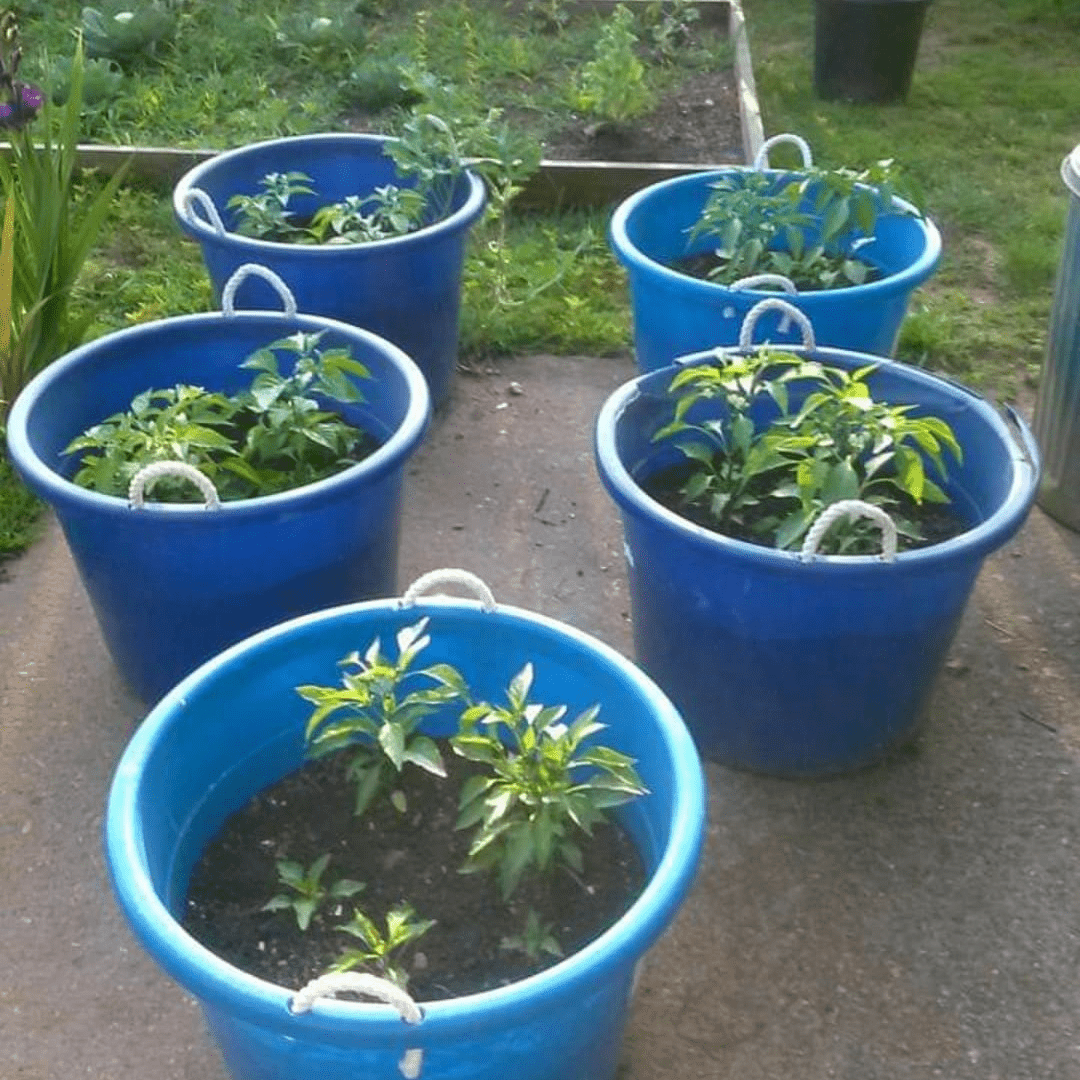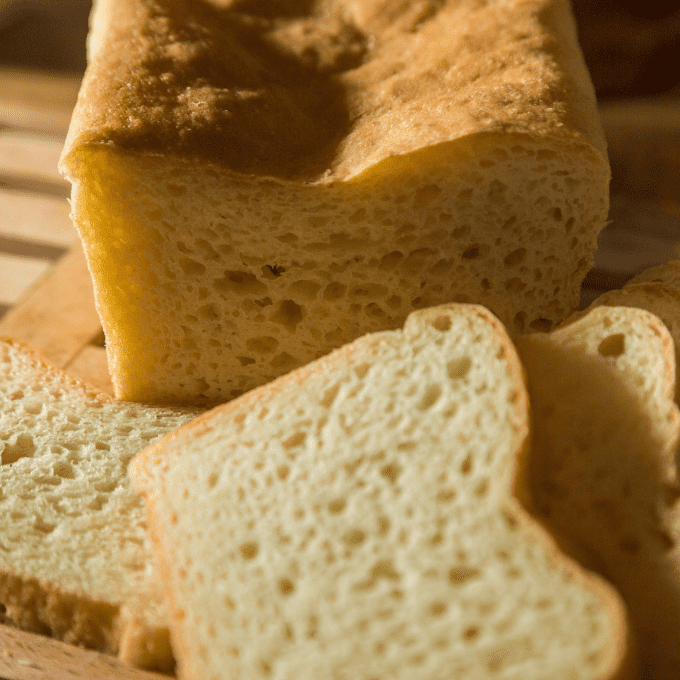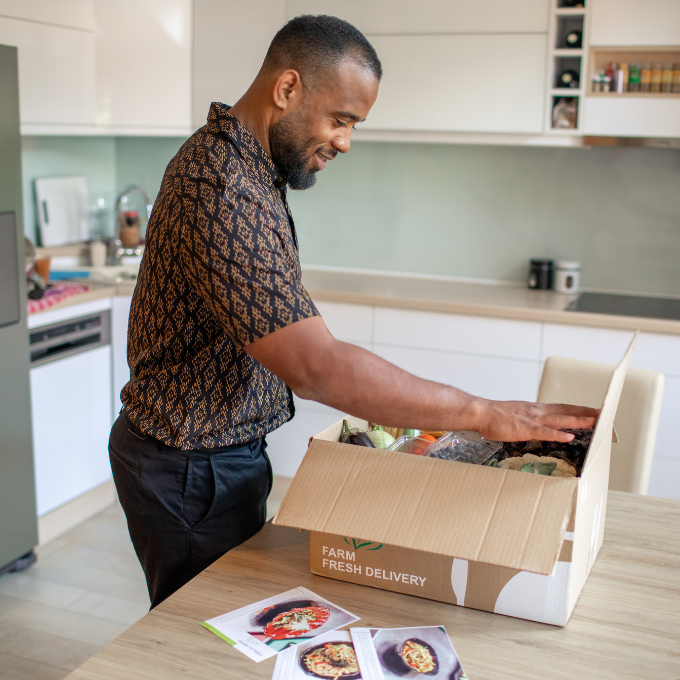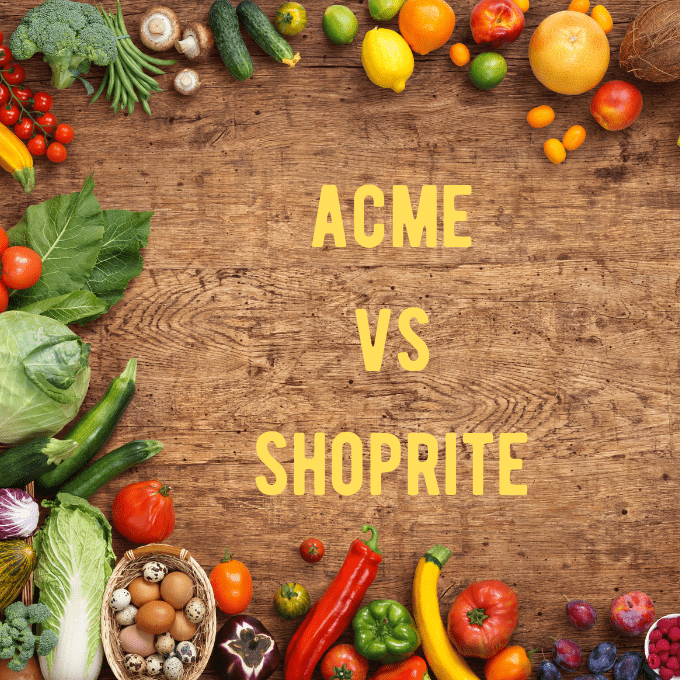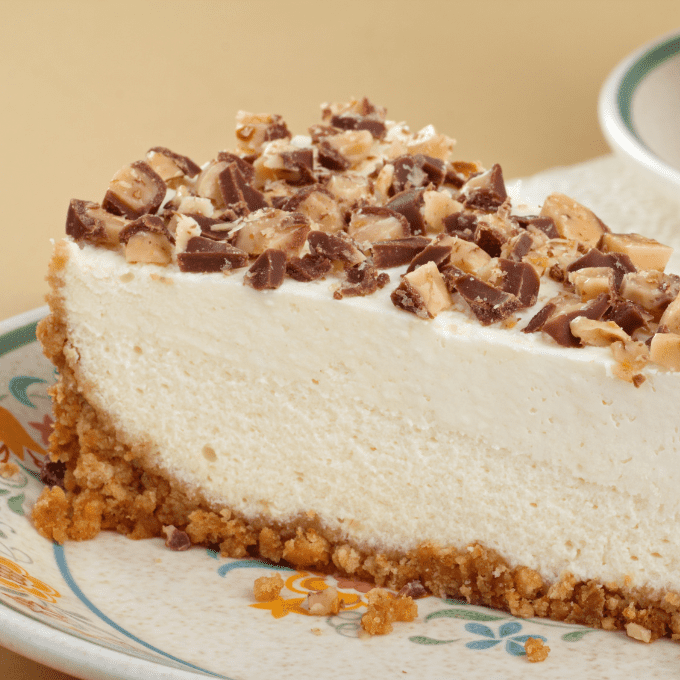Is Gardening an Expensive Hobby?
Gardening can be a fun and enjoyable hobby that brings you beautiful plants and vegetables for your dinner. It can also be a slippery slope into spending money.
The best way to keep gardening from becoming an expensive hobby is to start small and keep yourself on a budget. Prepare ahead of time exactly how much you are willing to spend and stick to that amount. There are tons of ways to garden inexpensively and have a great hobby garden that produces vegetables and beauty.
Can gardening save you money?
When growing your own vegetables and herbs, gardening can definitely save money on your grocery bill. To find out exactly how much you can save, you will need to look at what you traditionally spend on fresh herbs and produce at the store. Once you know how much you spend, then you can see how much you can save.
This is also a good time to look at which produce and herbs that you buy regularly and see what would be good to plant. I would make a list of all the items you purchase and see if they grow in your area. For instance, we buy a lot of mandarin oranges, but those are not good to grow in Georgia.
We do buy a lot of tomatoes, cucumbers, jalapenos, bell peppers, potatoes, and celery. These are all fairly easy to grow in my area, so these are good options to grow ourselves and save some money. The added bonus is that it is very easy to preserve these items by freezing them or canning them.
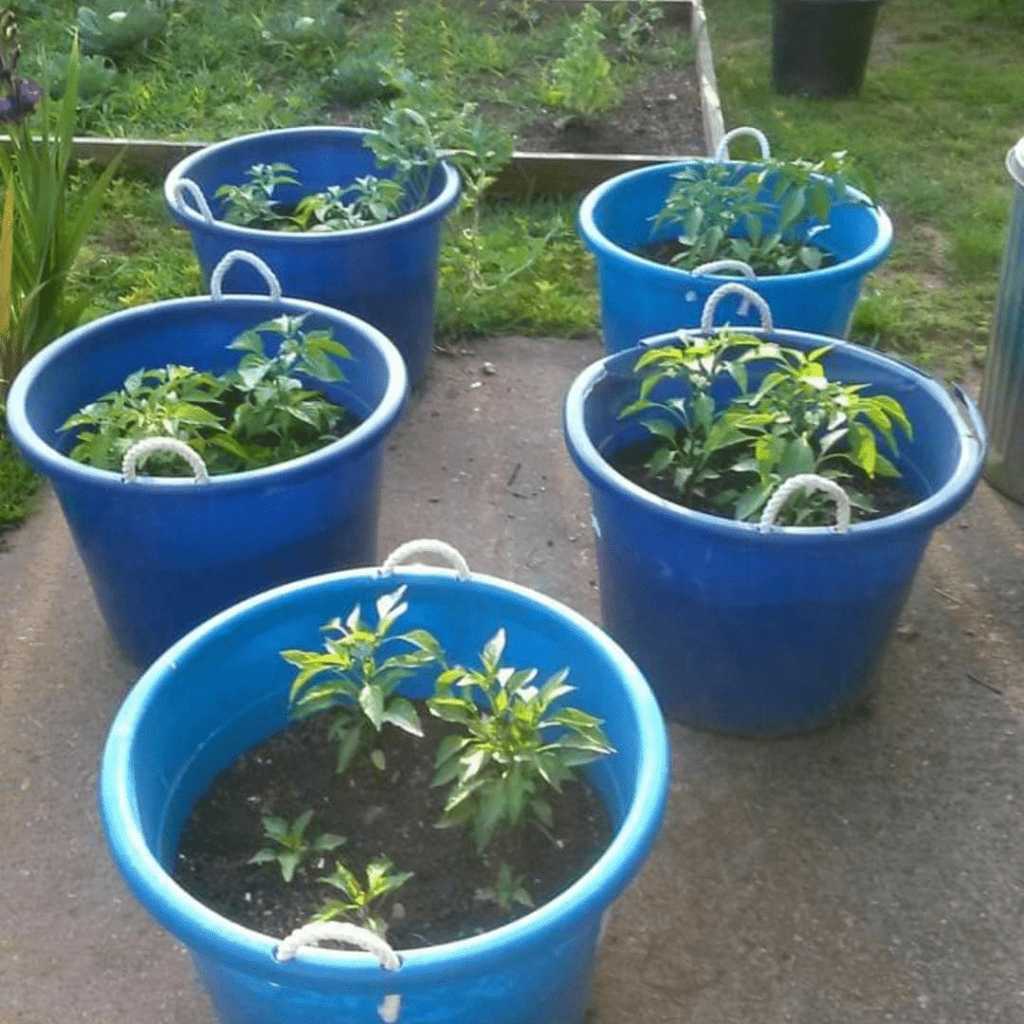
Is gardening hard to learn?
Anything that interests you and you want to learn will make it easier to learn how to do it. Gardening is one of those skills that you can start small and continue to grow (no pun intended) your skills over time.
I always recommend starting with container gardening first, before clearing a half acre spread to garden at home. For the first season, if you start your garden in containers you can decide for yourself if this is a hobby that you want to pursue.
So many people try to go straight to a huge garden instead of starting small. This leads to fatigue and disappointment. If you start small and enjoy the process for a whole season, then the next season you can go bigger with raised beds.
Once you master raised beds, you can start a mini farm plot on a bigger space if you have the room! We are still in the raised bed phase because we don’t have much workable land to put a garden on.
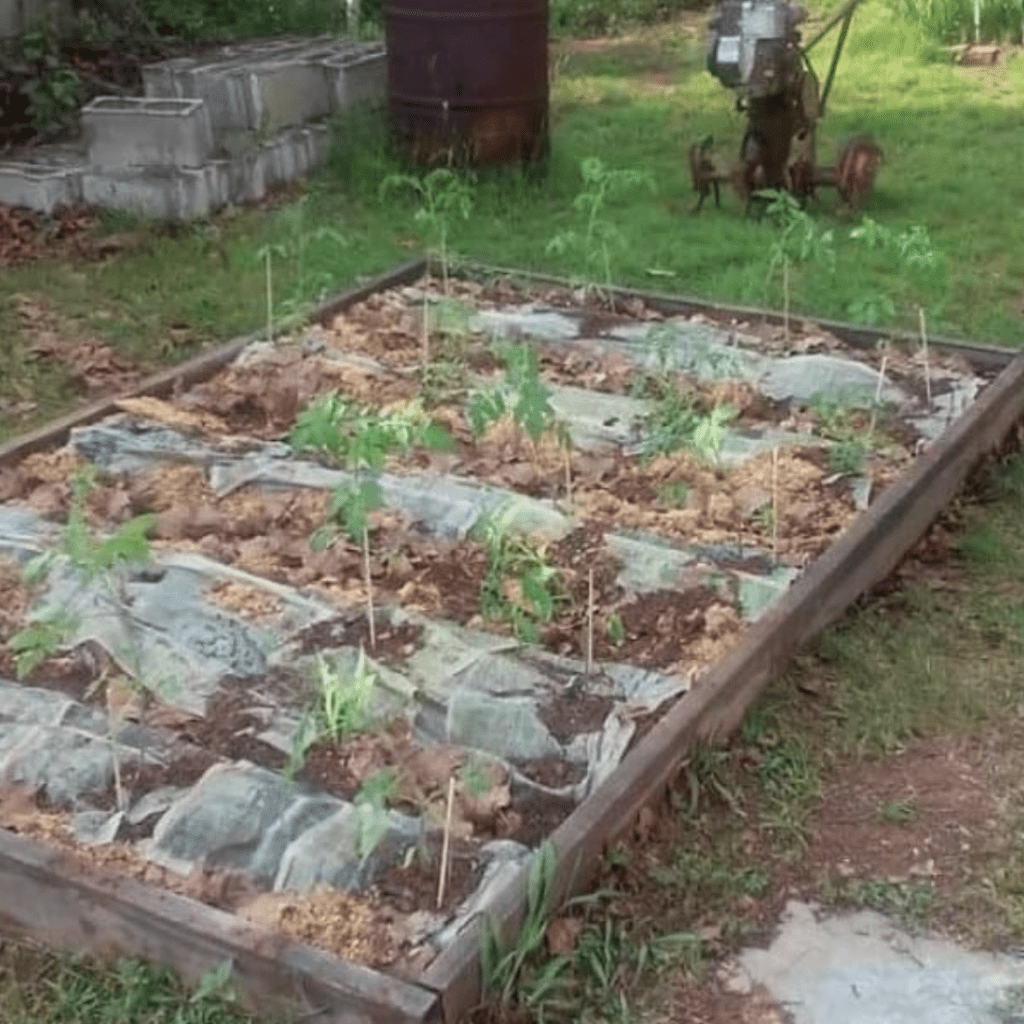
Is gardening worth it?
Gardening is truly in the eye of the gardener. So, if you enjoy the process of gardening and it adds value to your life, then gardening is definitely worth it.
If you don’t enjoy the process and find yourself dreading working in the garden, then gardening may not be worth it to you.
There are some parts of gardening that I am not a huge fan of like prepping the garden beds or pulling weeds, but they are needed and thankfully don’t last too long. I will gladly do these chores in the garden to enjoy the fruits of my labors!
Gardening does take a large time investment, so if you want a hobby that you can start and stop and forget about for weeks at a time, then this may not be a good option for you. If you typically take a 2-week vacation in the middle of summer, then your crops may become neglected while you are away and may not give you the food you were hoping would grow.
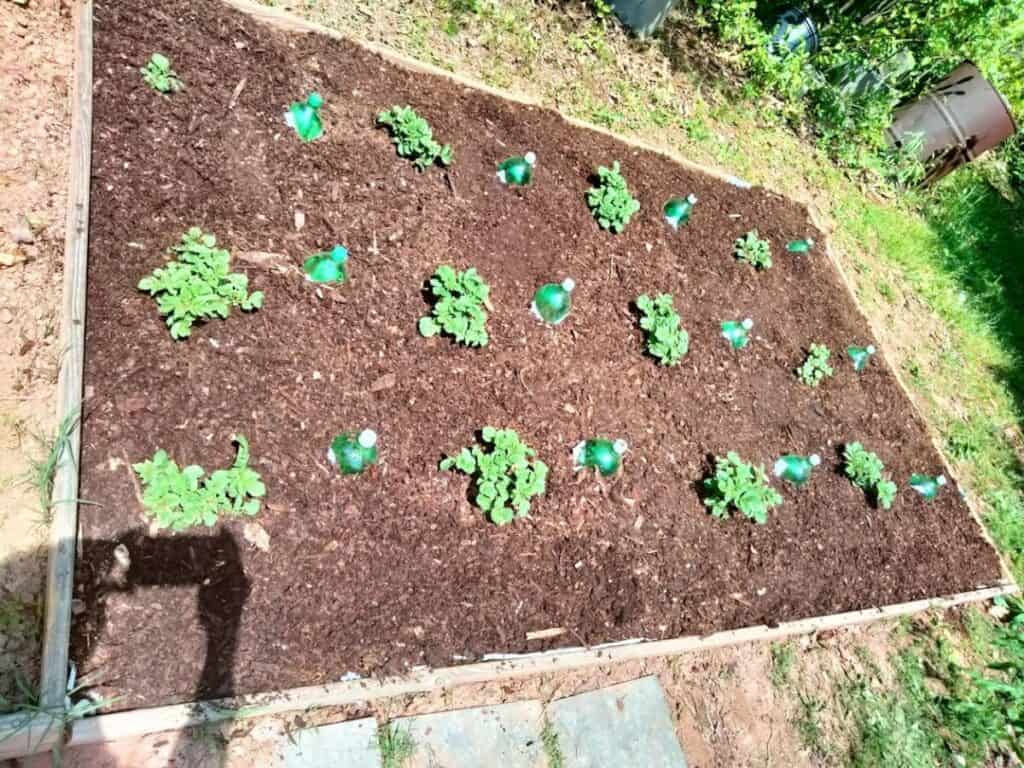
Tips for Saving Money on Gardening
The fun part about gardening is the possibilities are endless! There are so many options of items to grow and the way to grow them are just as huge. Here are my best tips for saving money on gardening:
- Shop Outside of the Garden center– For our first container gardener, we used giant plastic tubs that were from the home decor section. The giant blue tubs were being sold as storage for kid’s rooms and were about $2 a piece. The planting containers this big could easily run $50 a piece.
- Check out free and low-cost listings on Facebook – We have picked up free concrete blocks, walkway tiles, and chicken wire fencing. You can easily find some items at little to no cost as long as your willing to go pick it up. The concrete blocks we had to carry away from a torn down structure so it took a little effort and the chicken wire was covered in leaves and ivy but was still perfectly usable.
- Buy used equipment – our first tiller was only about $50 that we bought from a small engine repair place. A friend of mine gave it a tune-up and for a few dollars in parts we had a perfectly good cultivator to prep our garden. We learned about the tiller, because I posted to friends and family that I was looking for one. Someone responded that they had seen one that was really cheap so we checked it out. Start with lower cost options, and then save up for bigger and better purchases.
- Ask for Suggestions – Don’t forget that your friends may see things in their neighborhood that you don’t have in yours. If you are currently looking for something for your garden, ask on social media or call a friend. They may know someone or seen somewhere that you can get a great deal. A friend actually called me recently to let me know that a neighbor of theirs had a huge sign that said free dirt, and we went running over to get! Another time, a friend called to let us know that their relative was giving away free rabbit poop. These dropping are amazing for fertilizer in the garden because rabbits are vegetarians. Let friends know that you garden, and you might get some nice phone calls like that too.
- Call Local Companies – we recently needed mulch for our garden, and the price to buy it was just too high for our budget. We called many local tree services and found a place that gives away mulch if you come to pick it up. That hour I spent calling places saved me almost $300 in mulch! I probably called 8 places and heard “no” before I found one that said “yes” so don’t give up after 2-3 calls.
- Check thrift stores and secondhand places – we have found so many outdoor garden supplies at local thrift shops. Everything from rakes and shovels to cute planters and containers for herbs at really low prices. They may be a little dirty or rusty, but with a little love and patience they can be a perfect addition to the garden.
- Sign up for deals at Garden Centers – This one doesn’t save me as much money as I had hoped, but it has worked out a few times. A few of the bigger stores and even the smaller feed type stores all have an email list that you can sign up for that offer special deals and discounts. The trick here is to not jump at every offer, and make sure it is truly a good deal before buying. We have gotten some emails that stated they had an overstock or discontinued stock that was first come first serve that turned out to be a pretty good deal on plants, so it does come in handy sometimes.
- Recycle household items – You may have seen other articles that we have written about using 2-liter bottles to plant herbs in, using used tires to plant flowers, and even using newspaper as a weed barrier in the garden. These are all items that can used in the garden at no cost instead of buying expensive planters or weed barriers. It just takes some creative thinking to make this work. Our neighbor works for a printing company and brought us the ends of huge rolls of white paper. We used this paper in place of newspaper this year as the basis of our weed barrier and then topped with mulch!
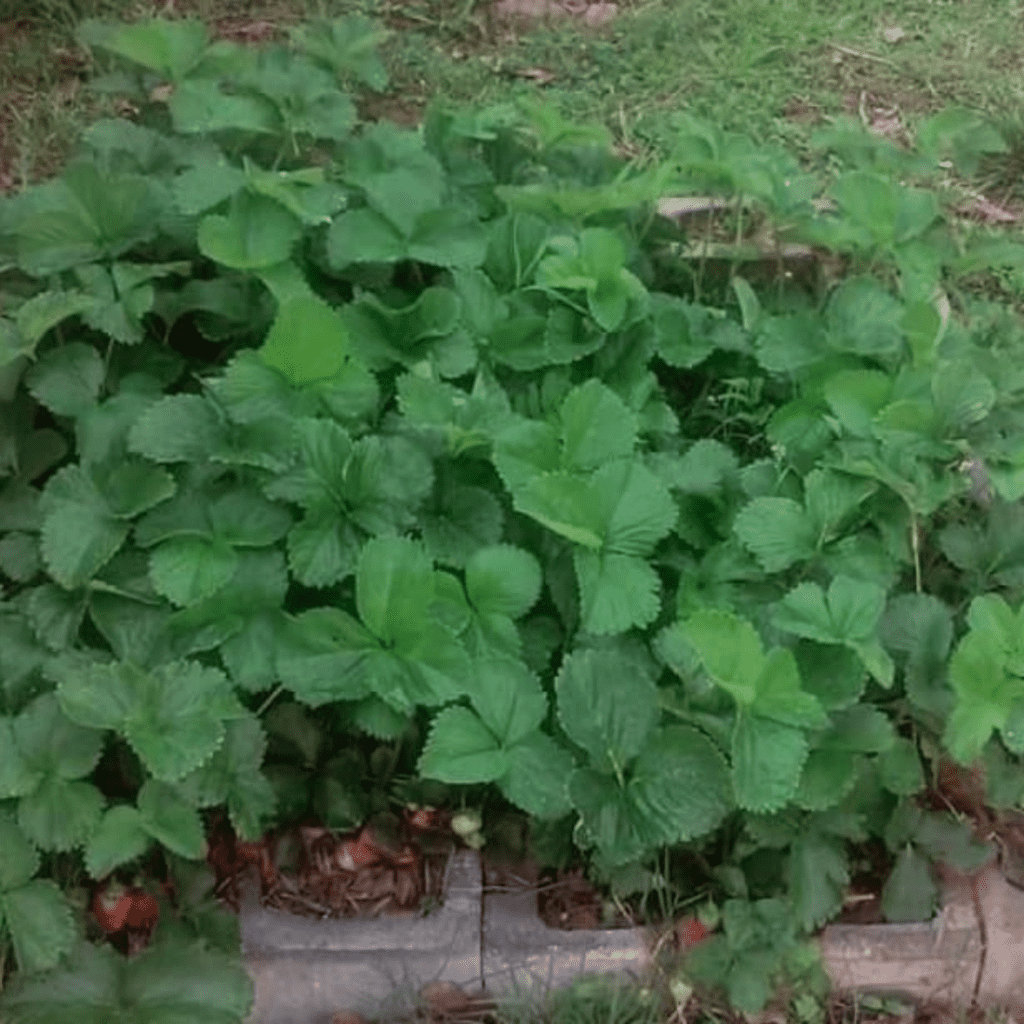
Gardening does not have to be expensive
Every year we plant vegetables and flowers in our garden, and we do it on a very low budget. We have gotten very creative over the years to get the job done without having to spend a lot of money.
Sometimes instead of spending money, we end up spending our time by going to get these items instead of just purchasing them at the store, but it usually pays off in a big way.
Another way to save money is to think about next year. When we do buy plants, we save the containers so that way next year we have the small containers to start our seeds in. There is very little that we throw away when it comes to our garden. Just because we can’t use it now, doesn’t mean that we won’t use it later.
To check out other ways we used recycled items in the garden, check out this article, “Frugal Gardening and Upcycling Projects“.

